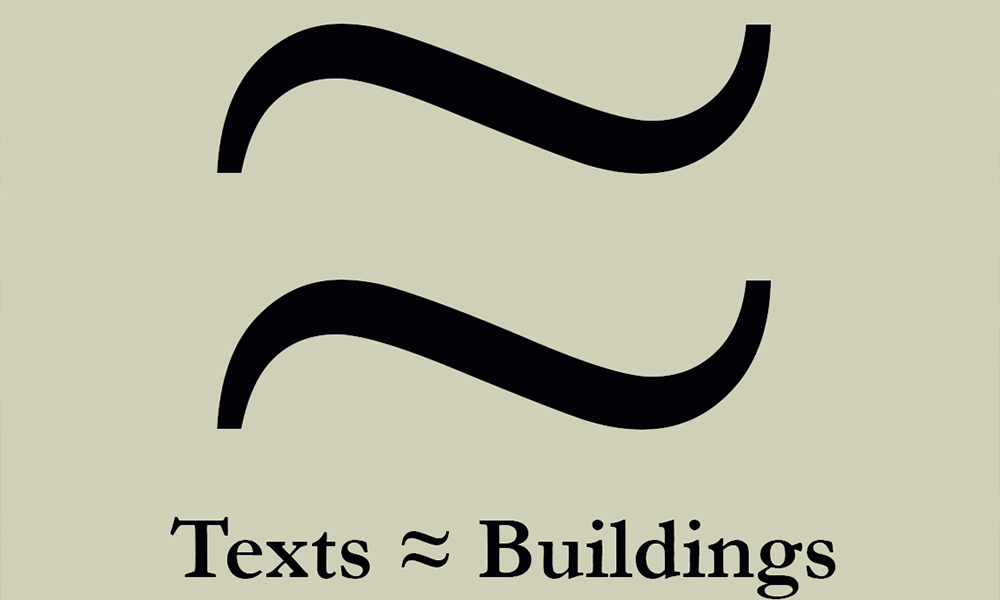
‘Texts ≈ Buildings: Dissecting Transpositions in Architectural Knowledge (1880-1980)’is a Scientific Research Network (SRN), launched in 2017 and hosted by the research groups Architectural Cultures of the Recent Past (ARP) and Architecture, Interiority, Inhabitation (A2I) of the Department of Architecture, KU Leuven, acting together as core research unit under the coordination of Rajesh Heynickx (Head), Fredie Floré and Ricardo Agarez.
‘Texts ≈ Buildings’ intends to investigate how ideas were launched, adapted or contested and how they finally shaped building practices, with a primary focus on enquiring how specific ‘travelling’ or ‘nomadic’ concepts rearranged architectural knowledge. How were ideas, such as for example ‘transparency’ or ‘purity’, deeply linked to both scientific and religious worldviews, translated into architecture? How were concepts that gained currency in the rarefied strata of published architecture culture – e.g. Post-structuralism, Regionalism, Brutalism and Semiotics – integrated and appropriated in down-to-the-ground practice, in the work of ‘minor’ authors and designers, and how were they expressed? How were they turned into materiality and ‘talked about’ – referred to, discussed, evoked – in the process? This research network will concentrate on Europe over a roughly 100-year period and on three specific ‘sites of transposition’ between different fields and between ideas and buildings, all of which have been insufficiently explored as such and constitute particularly fertile grounds for crossing-over developments: 1. Architectural education and training – classrooms, workshops and meetings as essential forums for theory-practice contamination whose mechanisms are often elusive, not necessarily or solely relying on published materials; 2. The bureaucracy enveloping built environment production, where myriad actors and cultures converge, interests and concerns are negotiated and essential debates determine the materialisation of intellectual concepts; and 3. Literary imagination – a powerful generator and disseminator of concepts and images both based on and resulting in built environment artefacts, real and envisioned, from the landscape and the city to the detail of an interior.
The core team at the Department of Architecture, KU Leuven develops the SRN together with ten national and international partners: the MDRN group of the Department of Literary Studies, KU Leuven; the ‘Power in History’, Centre for Political History of the University of Antwerp; the Arck group of the Faculty of Architecture and the Arts, Hasselt University; the Manchester Architecture Research Centre, MARC, of the School of Environment, Education and Development, University of Manchester; the ‘Building, Architecture & Town Planning – Architecture et Ingénierie Architecturale’, BATir – AIA group of Université Libre de Bruxelles; the Strong Research Environment ‘Architecture in Effect: Rethinking the Social’ of the School of Architecture, KTH Royal Institute of Technology Stockholm; the ‘Architecture Research Collaborative’ of School of Architecture, Planning and Landscape, Newcastle University; the ‘Architectural Temporalities’ group, Zentrum für Literatur- und Kulturforschung (Center for Literary and Cultural Research), Berlin; the Bilderfahrzeuge International Research Group at The Warburg institute, London; and the Chair of Methods and Analysis of the Department of Architecture, TU Delft.
Funded by the FWO
